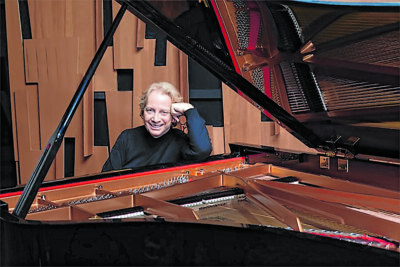 Governor Andrew M. Cuomo recently signed an executive order to restore voting rights to individuals on parole. This reform will restore the right to vote upon release from incarceration and reverse disenfranchisement for thousands of New Yorkers. Parole voting restrictions have a disproportionate impact on New Yorkers of color, with African Americans and Hispanic New Yorkers comprising 71 percent of the population so disenfranchised. Civic engagement is linked to reduced recidivism and this action will promote access to the democratic process and improve public safety for all New Yorkers. The executive order is available here.
Governor Andrew M. Cuomo recently signed an executive order to restore voting rights to individuals on parole. This reform will restore the right to vote upon release from incarceration and reverse disenfranchisement for thousands of New Yorkers. Parole voting restrictions have a disproportionate impact on New Yorkers of color, with African Americans and Hispanic New Yorkers comprising 71 percent of the population so disenfranchised. Civic engagement is linked to reduced recidivism and this action will promote access to the democratic process and improve public safety for all New Yorkers. The executive order is available here.
“I am issuing an executive order giving parolees the right to vote. It is unconscionable to deny voting rights to New Yorkers who have paid their debt and have re-entered society,” Governor Cuomo said. “This reform will reduce disenfranchisement and will help restore justice and fairness to our democratic process. Withholding or delaying voting rights diminishes our democracy.”
This executive action will reverse New York’s current disenfranchisement of individuals released from prison who are under post-release community supervision. New York joins fourteen other states and the District of Columbia that restore the right to vote upon release from incarceration. There are roughly 35,000 individuals currently on parole in New York who cannot vote. These individuals are participants in society at large, despite the limitations placed on them by parole conditions. They work, pay taxes, and support their families, and they should be permitted to express their opinions about the choices facing their communities through their votes, just as all citizens do.
Additionally, the current law keeping people on parole supervision from voting is internally inconsistent with New York’s approach to voting for people serving sentences of probation. People on probation never lose the right to vote, but many county election officials are unclear about the distinction between those on parole and those on probation, often resulting in illegal disenfranchisement. A 2006 Brennan Center study reported that one-third of all New York counties incorrectly barred people on probation from registering to vote, while another third of all counties illegally made individuals show proof of their voter eligibility status.
This past year, New York has passed sweeping criminal justice reforms, including raising the age of criminal responsibility, requiring law enforcement to video-record custodial interrogations for serious offenses, allowing the use of photo arrays to identify witnesses to be admissible at trial, and extending the landmark Hurrell-Harring settlement’s indigent criminal defense reforms to the entire state, becoming the first state in the nation to overhaul its public defense system in such a drastic manner.
In addition, the governor signed Executive Order No. 147 on July 8, 2015, which appointed the New York State Attorney General as special prosecutor in matters relating to the deaths of unarmed civilians in deadly encounters with law enforcement. The order allows the special prosecutor to review cases where there is a question whether the civilian was armed and dangerous at the time of his or her death. It remains the first and only executive order of its kind in the nation.



















